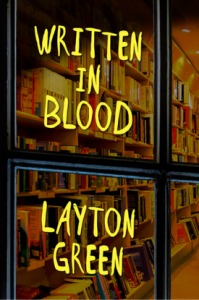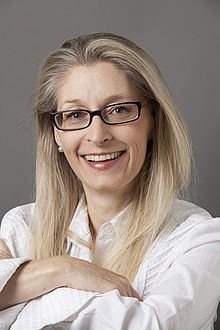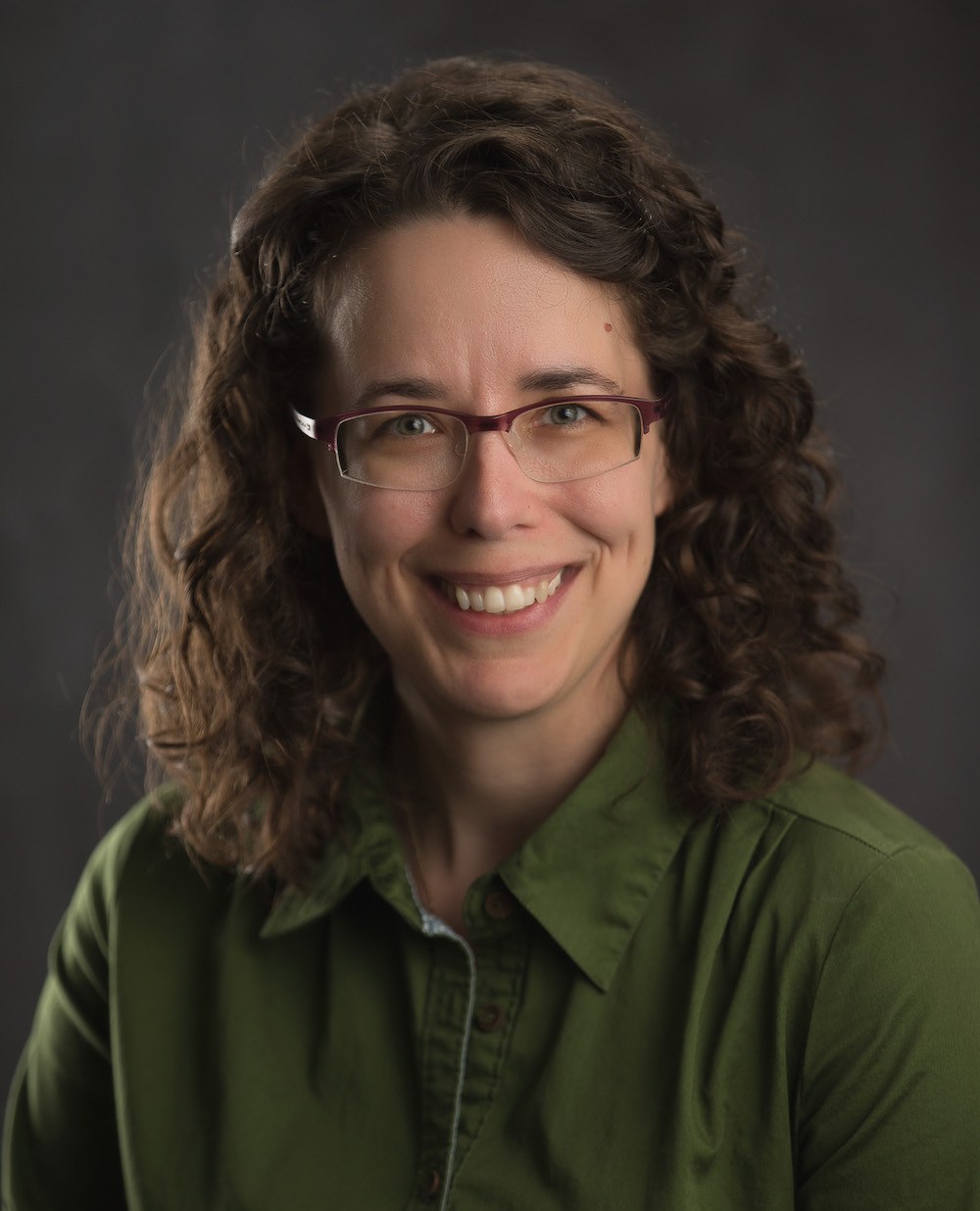 Nobody could ever accuse novelist and adventurer Layton Green of not following his muse no matter where it leads him. The author of a series of books that go from fantasy to thriller to mystery and back again, Green is never afraid of staying true to his own literary vision. I sat down with him recently to talk about his new book “A Shattered Lens,” his eclectic career path, and his rules for crafting compelling characters no matter the genre.
Nobody could ever accuse novelist and adventurer Layton Green of not following his muse no matter where it leads him. The author of a series of books that go from fantasy to thriller to mystery and back again, Green is never afraid of staying true to his own literary vision. I sat down with him recently to talk about his new book “A Shattered Lens,” his eclectic career path, and his rules for crafting compelling characters no matter the genre.
Open Mic: I’m reading “A Shattered Lens” right now, the second book in your Preach Everson series. Tell me a bit more about it.
Green: The series is about a detective from a small town in North Carolina. He spent most of his career with Atlanta homicide, but he has a devastating case that leads to him getting fired. Book one opens with him going back to his hometown in North Carolina. He thinks he is going to be in the twilight of his career, but he catches a murder, the first one in a decade in this small town, and he’s got to deal with it. Book two finds him with a new case in Creekville, investigating a new murder and the story of where his life is as well.
 Open Mic: I read that it took you six years to finish the draft of your first novel. I’m sure a lot of other aspiring authors can relate. What kept you going during that time? Did you ever think you weren’t going to get it done?
Open Mic: I read that it took you six years to finish the draft of your first novel. I’m sure a lot of other aspiring authors can relate. What kept you going during that time? Did you ever think you weren’t going to get it done?
Green: I think it took me two years to actually write the first draft and then closer to eight years to polish it to where I thought it was in good enough shape to go out. I’m really a goal-driven person, so I knew I was going to finish it one way or another. I had to quit my job to do it but I got it done. I think the lightbulb for me was that during the process of writing that first novel I realized this is what I want to do with my life, so it drove me to perfect it and make it as good as it could be. I knew it would get done, I just wasn’t sure when or whether it would be any good. I think that completing the novel is the most important thing. And that’s what I would tell aspiring writers – even if you think it’s bad, just finish it.
Open Mic: Is it true that you visit every location and setting in your novels?
Green: It is true with one exception. There is one location I have not visited due to the birth of my first son and travel plans were skewed. I’ve never revealed that location, and no one has yes said that it reads like I didn’t go there. But yeah, I’ve visited every other location.
Open Mic: That’s a lot of travel.
Green: It is. I love to travel. One of the reasons I started writing these novels in the first place is my love of travel and exploring the world, but I also find I’m a better writer when I do that. I think Graham Greene famously said he could write about any place in the world without ever leaving his sofa. I am not Graham Greene, so I feel that it really informs my fiction to go there and feel the place.
Open Mic: You’ve had a wildly varied career, from being a lawyer to selling knives on the streets of London. How did those jobs impact you as a writer?
Green: I would tell all aspiring writers to read and write as widely as possible and then live life as widely as possible as well. I think that everything you experience goes into your fiction either directly or indirectly, and in my opinion the more experiences the better.
 Open Mic: Your writing is also very diverse, covering horror, fantasy, mystery, thrillers and suspense. Writers are often told to stick to a single genre. Clearly, you’ve been very successful not following that commandment. Does that rule even still apply in this day and age?
Open Mic: Your writing is also very diverse, covering horror, fantasy, mystery, thrillers and suspense. Writers are often told to stick to a single genre. Clearly, you’ve been very successful not following that commandment. Does that rule even still apply in this day and age?
Green: I think it’s a valuable rule in terms of sales and marketing because if you want to make the greatest impact for most people, it’s probably good to stick to one genre and have that be your brand. But I’m also a believer that the job of fiction and of novelists is to explore the world and your mind in the best way that you know how, so you should go where that takes you. Stephen King famously got his start in horror, but he’s written a lot of other things too and I think people just don’t feel realize it. Dan Simmons is another guy that has just gone all over the map. Some people wish he would just write science fiction or fantasy, but he believes in exploring the limits of the imagination, which is more where I come. I have to be true to my vision, and if I’m not enjoying just knocking one thing out over and over then I need to diversify.
Open Mic: Does crossing genres present any difficulty in how you tell the stories? There are set rules in each of these genres, so do you need to shift your thinking and get in line with those genre rules, or do you write the story and let that play itself out as you go along?
Green: I think the former. I believe in innovation, but different genres absolutely require different ways of telling a story. Writing fantasy is quite different than writing mainstream crime fiction. I study genres extensively, and I’ll have genre notes all over my computer. I also only write in genres that I read really widely. I’ve been reading fantasy, for example, since I was eight years old so I just know that genre backwards and forwards. I feel the same with crime fiction, although I started that genre little bit later. With all that, there is a string that runs through my work that isn’t tied to genres. I have a really strong base readership that understands what they’re getting in a Layton Green novel, which is something that is going to take you around one world or another, or that will explore deep questions of humanity, the inner nature of man and women, mysteries of the cosmos and everything in between. I think people know they’re going to get that no matter what the novel’s setting is.
Open Mic: Which comes first for you: character or plot?
Green: I’ve had both come first. I think it depends on the story. I don’t know if you know Barry Eisler, who is a great suspense, thriller, and mystery writer. He just recently put out a series called Livia Lone, and he said the character just popped into his head and he knew he had to write this series. That has happened to me as well, but it’s also been the other way, where it’s an idea you just want to explore. For the Preach series, the plot came first for novel number one. For the second book I had developed out the characters and then had the idea of exploring the idea of a mother being accused of murdering her own child, so I crafted the book around it.
 Open Mic: Character development can be a big challenge. What makes for a compelling character for you?
Open Mic: Character development can be a big challenge. What makes for a compelling character for you?
Green: I would say two things, number one being the goal of that character. Fiction is driven by conflict, and characters in a novel need to have a goal they’re pursuing, whether it’s internal or external. The strength of those goals belonging to the main characters are probably directly related to the strength of the novel, so that has to be there. And number two, I think every reader, myself included, looks for characters they relate to. This is why we have such a wide range of novels that sell and that people love dearly. Some people might love Ready Player One (by Ernest Cline) and someone else might love Stephen King and/or romance novels or on and on, because you see those characters in yourself. That’s actually something hard to teach. Sometimes you just have to put yourself out there, and especially as novelists write more and more books there is skill in being able to empathize with the world at large and glean those characters and put them on paper. Plot comes very easy to me, but developing out a wide range of characters is much harder.
Open Mic: The publishing industry has changed a lot over years. How would you describe the atmosphere for writers now? Are things better or worse for writers than they were a decade ago?
Green: It’s always been hyper-competitive. I think the difference is now is it is definitely more egalitarian. With self-publishing you can carve out your own space and make a living where that was not an option for writers just ten years ago. It’s really opened the door for new forms of literature and audiences that may not attract the interest of a publisher. I know niche authors that have developed a nice fan base and a nice living, which is a good thing for literature. But it is also harder for both published and self-published authors to make a living these days because there are so many books on the market, and marketing dollars are spread thinner and eyeballs of the readers are spread thinner. It is kind of a double edge sword.
Open Mic: Writers are expected to do so much of their own marketing now. Do you have any advice for your fellow authors in this regard?
Green: I don’t like to leave anything to luck so I think it’s pretty essential to market and publicize your own book, regardless. My approach is to do as much as possible, but all of our times is limited, so practically speaking I write far more than I market or publicize.
Open Mic: What are your thoughts on social media? Do you use it much? And do you find it helps you sell more books?
Green: I don’t use a lot of social media. I have a Facebook page that organically attracted followers. It helps to sell in that those people are in one place. I have a newsletter and I have the Facebook page, but I don’t do a lot of active promotion on Facebook. I don’t use Twitter or Instagram at all. I know some authors who are extremely savvy on those platforms, and I think it does help them but I’m not savvy so I don’t use them so much.
Open Mic: Rejection is such a regular part of creative endeavors. How do you handle rejection?
Green: Rejection sucks but you just develop thick skin over time, which is essential for being any sort of artist or anyone wanting to be in the public eye. No one is going to have everyone like everything, and over time you need to look at the aggregate. Some people are always going to hate something you put out there, and I think you just have to believe in yourself.
 Open Mic: Do you ever use an independent editor to edit your work?
Open Mic: Do you ever use an independent editor to edit your work?
Green: A very sound piece of advice I give to aspiring authors is once you feel you’ve got to the best place you can get to with your first novel, hire the best editor you can afford. It’s very hard to look at your own story and just know exactly what needs to stay and what needs to go. I have a handful of very trusted beta readers, and then I have a stable of professional editors. I will take it to my private editors even before I go to my publisher. I pay them to give me their honest opinion. Even then, I have to make decisions about what stays and what goes and it’s really hard.
Open Mic: What kind writing schedule do you keep? Do you have a word count you reach for every day?
Green: I write for about roughly six hours a day. I don’t really have a word count, but it varies between one and three pages a day, and that’s just depending on what I’m writing about. The rest of the day I’ll do plotting or marketing.
Open Mic: I like to end on a fun question. Let’s say I can put you together for dinner and drinks with only one of the following three people. Who do you choose and why? Your options are: Nelson Mandela, travel author Bill Bryson, or the famed New Orleans voodoo priestess Marie Laveau.
Green: Oh man that’s tough. Bill Bryson is a fantastic author and I’m sure he would keep me laughing. Nelson Mandela would be really intriguing to sit down with and just hear his views on the world. And then Laveau…wow, what a personality. I’m going to go with Marie Laveau, just to learn more of what she’s about and to get her historical perspective on a really fascinating sub culture.



